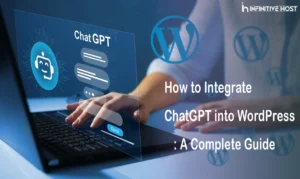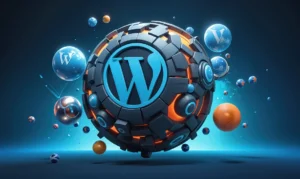Understanding the WordPress Fundamentals: Posts and Pages
WordPress is a resourceful content management system (CMS) that controls a massive number of unique websites, ranging from blogs to business websites. One of the most important components that make WordPress so compatible is its ability to sort content with the help of two key types: pages and posts. At first glance, they may look alike, but have different features and functionality. Understanding the differences between them is important for running your WordPress-based website successfully. In this blog, we’ll analyze the differences between pages and posts and provide a clear understanding of selecting the best hosting provider for WordPress to fulfill your website’s requirements.
About WordPress Posts
Posts are types of entries that are recorded in reverse chronological order, which means that the current post appears at the top. They are developed for prompt content, like the latest updates, blog records, or notices. Here is a complete analysis of all the important features:
Online Sharing
Posts are usually shared on various online platforms and can boost user involvement with the help of comments.
Chronological Order
Posts are always shown in a specific sequence that is from latest to oldest, making them look best for content that is related to time.
RSS Feeds
Posts within your RSS feed of the website can be utilized to organize content for subscribers.
Archive Pages
Posts are archived in both year and month, making it simple for subscribers to search for any older entry.
Tags & Categories
Posts can be tagged and categorized, allowing for good arrangement and searchability. Categories represent broad groupings, whereas tags are more precise.
Use Case
Posts might work for a blog related to tech updates to inform subscribers about trendy gadgets or allow them to follow the latest updates instantly.
About WordPress Pages
On the other hand, pages are specially designed for static content. They are typically utilized for information that you don’t want to change, like:
About Pages
Including details related to your company or any other personal information.
Contact Pages
Providing a type of way for subscribers to talk to you.
Landing Pages
Developed to transform site visitors into permanent clients.
Features of Pages
Static Content
Pages are typically static, which means they remain the same and change only when updated manually.
Hierarchy
Pages can be arranged in an order, which means that you can simply make parent and child pages for easy understanding.
No Tags or Categories
Apart from posts, pages do not use tags or categories, which helps keep attention to static content.
Not Included in RSS Feeds
Pages are not included in the RSS feed, as they are not designed to be changed regularly.
Use Case
Any business website might utilize pages to show its products or services, share contact details, and provide company information—all of which are appropriate for visitors.
When to Use Pages vs. Posts

Use Posts When
- You have dynamic content that needs to be changed regularly according to time.
- You can also use tags and categories to arrange content in a specific order.
- You focus on increasing readers’ involvement with the latest trends, news, or announcements.
Use Pages When
- You want to develop static content that stays non-changeable until updated manually.
- You wish to make a website structure with necessary, static information.
- You are including crucial details like contact information or about some specific sections.
Why Dedicated WordPress Hosting Matters
Performance Enhancement
WordPress-based hosting frequently includes optimizations like caching, which can mainly boost website performance and offer high speed.
Safety Features
WordPress hosts usually offer more safety measures, including timely updates and backups and DDoS protection, to protect your website.
Expert Support
These hosts typically provide expert support who easily understand the problems related to WordPress, which can be vital for resolving problems.
Automatic Backups
Automatic backups are very important for any website to recover in case of issues, and WordPress hosting providers also include this feature as a main part of their available service.
Best WordPress Hosting Service Providers

Infinitivehost and gpu4host
Infinitivehost and gpu4host are in demand as suggested by WordPress itself; it has budget-friendly and scalable hosting plans with effortless setup and a variety of unique features.
SiteGround
It is famous for its superior performance and expert support service, the company provides managed WordPress hosting with crucial features such as automatic backups, solid safety measures, and many more.
WP Engine
It is popular for high-end requirements, the company provides advanced and managed WordPress hosting plans with reliable performance, cutting-edge security measures, and unmatched support.
Conclusion
Knowing all the differences between pages and posts on WordPress is very important for successful website management. Posts are the best option for time-based and frequently changing content, while Pages are the best option for static content. Selecting the best hosting provider for WordPress is really necessary to ensure that your website runs seamlessly and resourcefully. While Infinitive Host provides different types of web hosting solutions and gpu dedicated server under budget with a 99.9% uptime guarantee and 24/7 customer support, for advanced WordPress requirements, you can easily contact it to enhance your online presence. By making well-versed choices related to your content arrangement and hosting, you can enhance your website’s speed and visitor experience.







